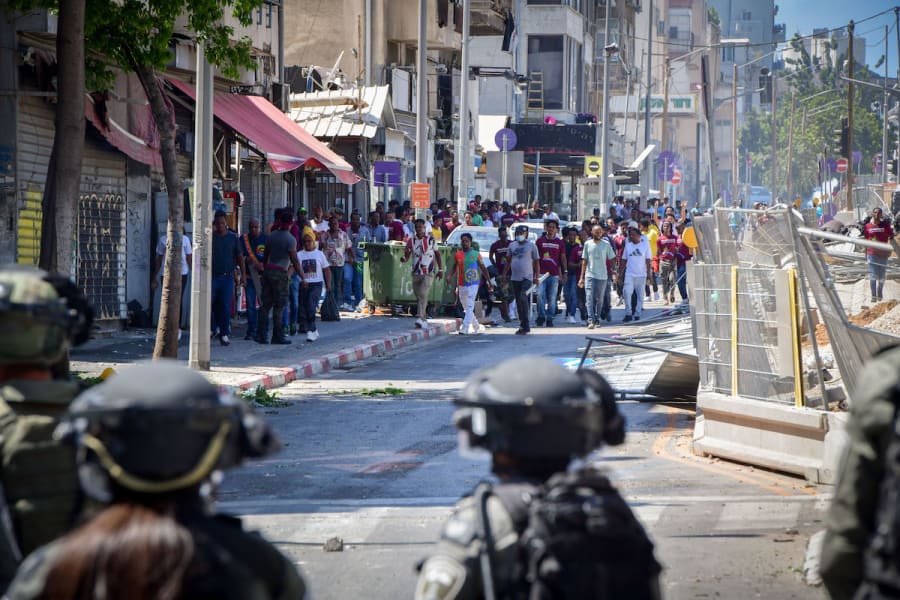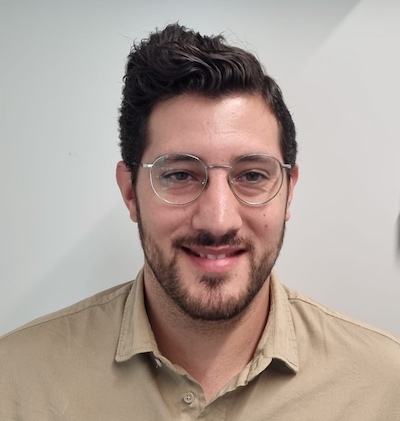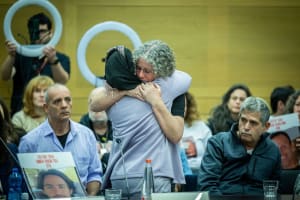Police closure of Eritrean churches following violent riots raises questions about freedom of religion in Israel
Evangelical representative condemns rare ‘precautionary measure’

In a rare move earlier this month, the Israeli police ordered the preventative closure of four Eritrean Orthodox churches in southern Tel Aviv, following violent clashes between hostile groups of Eritrean asylum seekers the weekend prior. The clashes reportedly resulted in over 160 people injured, including police officers, and devastated parts of Tel Aviv, according to local media reports.
The move represents an unusual and serious curtailing of religious freedom, as the four churches were, by order of the State of Israel, forbidden from holding their Sunday services on Sept. 10.
Danny Kopp, president of the Evangelical Alliance of Israel, condemned the police decision.
“The closure of the Eritrean churches is a serious violation of basic civil rights and an unprecedented escalation has been set in clamping down on religious freedoms of Christians in Israel,” Kopp told ALL ISRAEL NEWS.
The police justified the unusual decision by claiming that Israel's military intelligence warned that asylum seekers from various parts of the country may be planning once again to converge on Tel Aviv to continue the clashes between supporters and opponents of the Eritrean regime.
Kopp responded that the churches being "closed as a ‘precautionary measure’ to quell violence is demonstrably a false pretext and completely unjustifiable. If anything, it increases the likelihood of violence. Clearly, it is a means to make life intolerable for the Eritrean community as a whole in an effort to induce them to leave the country.”
Pastor Haile, leader of the Eritrean Pentecostal (Evangelical) Church in Tel Aviv, told ALL ISRAEL NEWS that the churches were, indeed, closed last weekend.
Haile explained that there are at least 12 different Eritrean Orthodox churches in Tel Aviv, some of which support the regime, while others are against it.
The report in Haaretz claimed that the clergy tries to avoid alignment with either the regime's supporters or opponents.
The police closed down the churches whose participants were considered potential troublemakers, Haile stressed. They were easily recognizable by certain clothes they wore, as well as posts on social media.
He personally saw clergy and members of Orthodox churches taking part in the violent riot, Haile told ALL ISRAEL NEWS.
Because his church attendees did not take part in the Sept. 1 clashes, the church wasn’t contacted by the police at all and continued their regular services.
According to Haaretz, Eritrean community leaders also expressed concerns over the closure of the churches and the curtailing of the freedom of worship.
On Saturday morning, Labor party Knesset Member Gilad Kariv appealed to the local district police commander to reconsider the decision.
However, Haile believes the church closures could act as a deterrent, reminding would-be rioters that there are consequences for their actions.
According to the pastor, the Eritrean Evangelical community enjoys the religious freedom they have to preach the gospel in Israel. Under Eritrea’s dictatorial regime, Christians are threatened with decade-long prison sentences just for possession of a Bible, he said.
Relations between Pentecostal and Orthodox Eritreans in Israel are problematic as well, as Haile described that Pentecostals can be beaten up for preaching the gospel to other Eritreans in Tel Aviv.
When asked for permission to include his statements in this exclusive ALL ISRAEL NEWS interview, Haile reacted with surprise.
“Of course,” he said. “Whoever has the truth doesn’t need to be afraid.”
Unlike a dictatorship like Eritrea, Israel is a free country, where one doesn’t have to be afraid, Haile emphasized.
According to Open Doors, a non-denominational organization that supports persecuted Christians worldwide, believers in Eritrea who are not part of one of the state-sanctioned churches “suffer extreme persecution, making it one of the hardest places in the world to follow Jesus.”
Open Doors estimates there are at least 1,000 Christians detained in Eritrean prisons indefinitely.
We recommend to read:

Hanan Lischinsky has a Master’s degree in Middle East & Israel studies from Heidelberg University in Germany, where he spent part of his childhood and youth. He finished High School in Jerusalem and served in the IDF’s Intelligence Corps. Hanan and his wife live near Jerusalem, and he joined ALL ISRAEL NEWS in August 2022.









